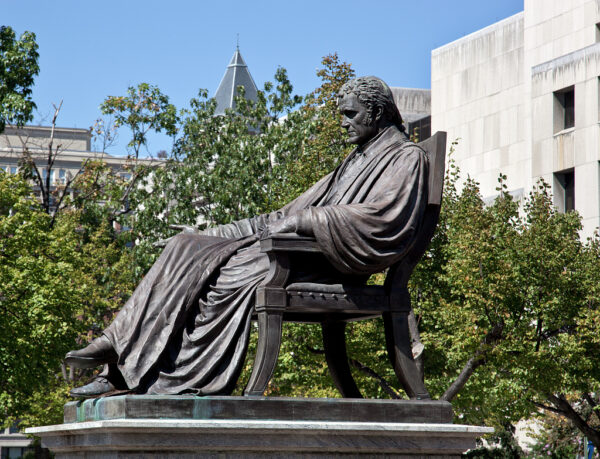John Marshall, Peacemaker
When I rub my finger above my right eyebrow, I can still feel a tiny scar above my right eyebrow. It’s been there since I was ten years old.
Two friends came to play one day at our big old house behind Daddy Leland’s grocery store. I don’t remember the details, but they got upset with one another. While trying to find them, I ran up our back steps and straight into the facing of the screen door that led into the back porch.
When I began to holler, Mother was sure that someone had finally had a terrible fall while sliding down the banister in the hall. She grabbed our big striped beach towel—much too big for the gash above my eyebrow—and hurried me to the Ashland City clinic for stitches. My attempt at peacemaking didn’t turn out as I had planned, but perhaps the little emergency stopped the squabble.
I don’t remember getting stitches being particularly traumatic, but, for some reason, I was afraid when Mother took me to get them out. I don’t know what the doctor was going through that day, but he had no patience with his frightened young patient. He threw his scissors down on the examining table and walked out of the room!
You can imagine why I remember that part of the story so well. I don’t remember how the stitches got out that day. I assume that he calmed down and came back.
We humans—young and old—are easily tempted into conflict. It’s no fun to play umpire in the petty squabbles of children, but big squabbles, as history has shown over and over again, can cause great big wars.
As America was learning how to be an independent country in the late 1700s and early 1800s, England and France were having a great big squabble. Many Americans, including members of Congress, were divided between those who favored France and those who favored England.
President John Adams declared the United States neutral and worked to keep us out of their war. John Marshall, Revolutionary War hero and future Chief Justice of the Supreme Court (1801 to 1835), was then serving as the floor leader of the Federalist party in the U.S. House of Representatives.

Statue of John Marshall, John Marshall Memorial Park, Washington, D.C.
Courtesy of The George F. Landegger Collection
of District of Columbia Photographs in Carol M. Highsmith’s America,
Library of Congress, Prints and Photographs Division.
When elected, he said that he hoped that a mutual spirit of tolerance and forbearance would succeed the violence which had seemed too great in the previous year. He worked to get to know his fellow congressmen on both sides of the issue.
Marshall was a close friend of the speaker of the House. Not long before President Adams gave his annual message to Congress (now called the State of the Union address), Adams and the speaker had an angry confrontation. Today a member of the opposition party makes a speech in response to the president’s State of the Union. A similar tradition was in effect at that time. Marshall was chosen to give the congressional response to President Adams’ address. Because of Marshall’s close friendship with the speaker, President Adams and members of Congress expected Marshall to criticize Adams in his speech.
Instead, Marshall stated that Congress was in total accord with the president. He praised the character of the diplomatic delegation that Adams had sent to France to work for peace. Marshall offered “our fervent prayers to the Supreme Ruler of the Universe for the success” of their efforts and for the negotiations to bring peace and happiness. He also praised Adams for a life useful to American citizens.
Praise God for American leaders who continue to offer fervent prayers to the Supreme Ruler of the Universe. Praise God for the peacemakers. Jesus called them blessed.
“Blessed are the peacemakers,
for they shall be called sons of God.”
Matthew 5:9

